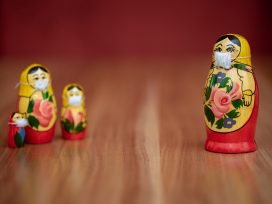is associate professor of sociology and communication at The New School for Social Research. She has held fellowships at the Truman Institute for the Advancement of Peace at Hebrew University in Jerusalem, the Centre for Contemporary History in Potsdam, and the Yale Center for Cultural Sociology in New Haven. Her interdisciplinary work argues that much of everyday life rests on the unexpected, not on the planned. Regardless of the extensive rationalization and disenchantment of contemporary social life, people remain deeply influenced by stories, events, mythologies, totemic objects, and magnetic personalities. Research thus has to pay closer attention to the performative and emotional dimensions of social interaction and confront elements of the human condition that cannot be pinned down by definitions or numbers, covered by theories, or even captured by words. Sonnevend is the author of Stories Without Borders: The Berlin Wall and the Making of a Global Iconic Event (Oxford University Press, 2016) and is currently working on a new book about the role of ‘charm’ in business, politics, artificial intelligence, and everyday social life.


